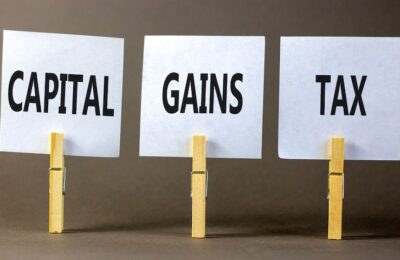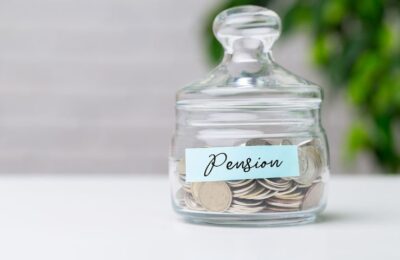Saving business costs – small business expenses
Running a profitable business isn’t just about selling lots and lots of things – it’s also about keeping your operating costs down or saving business costs. In the early stages in particular, it’s wise to be as frugal as you can.
So what are the biggest costs to a business, and how can you keep small business expenses to a minimum?
Here are our tips for being a super scrimper.
1. Plan your budget when looking at saving business costs
Monthly budget planning and review helps to keep track of what you’re spending your money on. Shop around for the best deals on things like energy, broadband and business bank accounts and keep a close eye on your bills – back in 2017 www.companybug.com reported that one in five businesses’ bills contained errors.
Consider buying equipment like desks and computers second-hand or leasing equipment and vehicles if it’s cheaper than buying them. Buy office supplies in bulk whenever you can and use video calls instead of travelling long distances to meetings.
2. Embrace remote working
Offices are expensive to run: you have to pay for rent, utility bills, maintenance and upkeep, yet many businesses are reluctant to let go of them. But the Coronavirus crisis definitely caused many business owners to re-assess.
Cloud-based software means remote working is now easier than ever and it can really help save on operating costs too. Allowing some or all of your team to work from home means you can run a smaller office with lower overheads – and remote workers often turn out to be more productive thanks to their increased well-being and contentment.
There’s a further advantage too, which is that you can hire anyone anywhere in the world as they don’t need to get to your office – and it will help you to retain good people if they need to move away for personal reasons.
3. Don’t spend too much on advertising
Advertising is important but there’s no need to go overboard with it.
Start small if your budget is limited – social media and basic search engine optimisation can be done for free in-house. That said; appreciate the value of media coverage. Every story in the local, trade or national press is a free advert for your business, so send out a press release every time you have something newsworthy to communicate.
Above all, however, value good old-fashioned word of mouth. No amount of promotional material beats a recommendation from a happy customer, so ask for reviews and testimonials wherever possible.
4. Don’t take on staff you don’t need
We’re definitely not advocating overworking your team – quite the reverse, in fact.
The key to not being overstaffed is making sure all the work you ask your team to do is actually necessary. This may sound obvious but especially in the corporate world, many businesses are guilty of creating work to the extent that they end up employing people they don’t need.
Presentations, reports, meetings… not only is much of it there simply to make people look important, it can be deeply unsatisfying for your staff, especially if they don’t recognise it as genuinely useful.
If you really do need extra help, consider first whether you can hire someone part-time or outsource the work to a freelancer or external company.
5. Look after your team
Recruiting people is expensive.
This is the case not only in terms of the cost of the recruitment process itself but in more subtle ways too.
If your business gains a reputation for having a high staff turnover, the most talented candidates won’t even apply.
Give your team more of the things they value, whether that’s flexible working, proper training, or just feedback and praise, which cost nothing. Table tennis and pool tables make nice gimmicks but what your team really care about in the long run is whether you are kind to them.
6. Share your space
If you own a building, you may be able to rent part of it out to someone else – as Sainsbury’s once did with Argos. The benefits of this aren’t just financial (for both of you).
You’re likely to see higher footfall on your premises and may be able to create a symbiotic relationship with the other business. Perhaps you could provide services, refer clients to each other or save money by sharing equipment and other resources.
If both businesses are very small, you might even be able to help each other out by answering each other’s phones and taking deliveries when one of you isn’t there.
7. Be prepared for taxes
Undoubtedly one of the top 10 business expenses is taxation. As such, you need to make sure you have enough money set aside for your tax bill.
And don’t miss the deadline, or you’ll be fined.
It’s worth spending money on a good accountant to ensure you are making the most of your tax allowances too. Even if you’re just a sole trader working from home, you can claim part of the cost of things like electricity and broadband. We can help you maximise your claims without landing you in trouble with HMRC.
A few years back, the website www.smallbusiness.co.uk reported on a poll of more than 500 businesses by accounting company FreeAgent, in which four out of five owners of very small businesses (those with fewer than ten employees) said they didn’t claim back all their expenses on their tax return.
This is complete madness.
The government is offering ways to help you reduce your tax bill because it recognises that thriving small businesses are the cornerstone of a thriving economy. So be sure to take advantage of it!
At THP Chartered Accountants in Chelmsford, Sutton, Wanstead and Saffron Walden we help business owners across the south east operate within their means – and get the most out of every penny.
Whatever aspect of accounting, tax planning or finance you need help with, we can provide it. Just give us a call on 020 8989 5147 to chat about how we can help.
About Mark Boulter
Mark Boulter is responsible for the efficient running of the firm’s infrastructure, and ensuring that THP delivers the best client service. Promoting the vision and culture across all branches, people are the key: “I like people who have a fresh approach and I’m happy for them to run with their ideas,” he says.
Communication across departments is crucial and Mark pioneers this. He ensure that people and departments not only talk to each other, but that they share ideas– whether they’re about marketing, finance, sales, strategy or any other topic that can result in us offering a better service. “I think helping to develop the next generation of THP people is essential to our success,” Mark adds. “We’ve a lot of talented people and our way of doing things increasingly attracts ambitious newcomers who are looking for a fresh approach. That’s good for us and even better news for our clients.”












